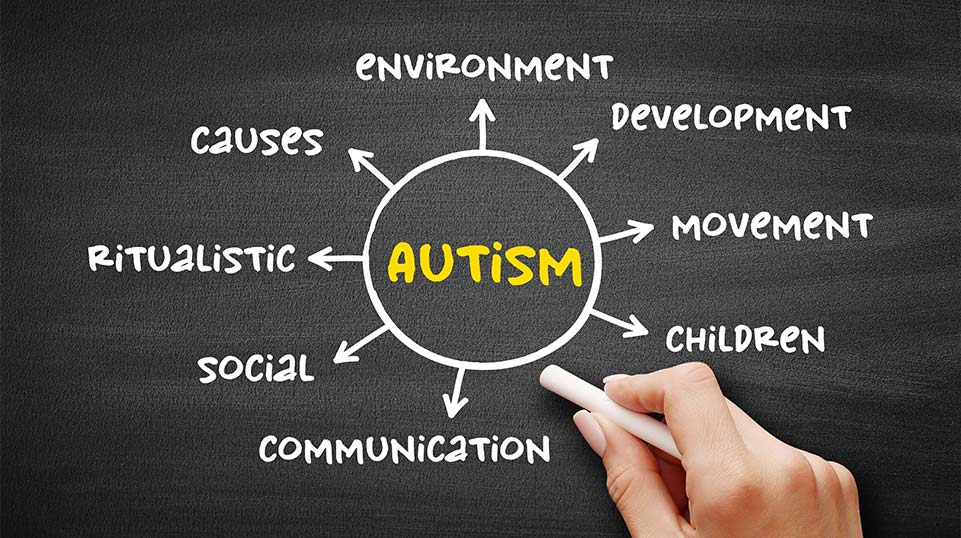Recognizing the Effect of Behavioral Therapy on Mental Health
Behavioral treatment plays a vital duty in enhancing mental health and wellness. It uses structured methods to recognize and modify adverse actions and believed patterns. By cultivating self-awareness and psychological strength, individuals can establish much healthier coping strategies. Nevertheless, the nuances of its performance across various mental health issues and its assimilation into everyday life stay complicated. Checking out these facets discloses the profound influence Behavior Treatment can have on general lifestyle.
The Concepts of Behavioral Treatment
Behavior Therapy is grounded in the concepts of discovering concept, highlighting the role of evident habits in mental health and wellness treatment. This strategy is based on the property that habits are learned and can be unlearned or customized with proper treatments. It concentrates on the interaction between activities, feelings, and thoughts, assuming that transforming maladaptive behaviors can result in improved psychological and mental health.
Central to this treatment is the concept of support, where positive or unfavorable stimuli affect habits change. In addition, Behavior Therapy prioritizes measurable end results, intending to track progression via observable changes. It also recognizes the value of context, promoting for an understanding of environmental variables that add to behavior patterns. By using these principles, Behavioral Therapy addresses a large range of psychological health and wellness concerns, making it a effective and functional therapy alternative for people looking for to improve their psychological wellness via structured behavioral modifications.
Typical Strategies Used in Behavioral Therapy
Typical strategies utilized in Behavioral Therapy play a necessary role in attending to various mental health and wellness issues. This discussion will highlight cognitive behavioral methods, exposure therapy approaches, and support methods, each contributing distinctly to the restorative process. Comprehending these strategies can boost understanding of just how Behavior Therapy efficiently advertises psychological health.
Cognitive Behavioral Strategies
While numerous methods exist within the domain name of therapy, cognitive behavioral methods stick out for their organized approaches focused on addressing unfavorable idea patterns and habits. These techniques typically involve determining distorted cognitions, testing these thoughts, and replacing them with even more balanced viewpoints. Usual approaches include cognitive restructuring, where people learn to recognize and modify their automated adverse thoughts, and behavior activation, which motivates interaction in positive activities to combat sensations of clinical depression. In addition, mindfulness techniques are often incorporated to boost understanding of thoughts and feelings without judgment. By methodically working with these strategies, people can develop healthier coping systems, inevitably leading to boosted psychological wellness and resilience versus different psychological challenges.
Direct Exposure Treatment Approaches
Exposure treatment techniques are widely recognized as reliable strategies within Behavioral Therapy, specifically for treating anxiety conditions, anxieties, and trauma (PTSD) These methods include progressive direct exposure to feared stimuli, permitting individuals to confront and process their worries in a regulated environment. Common techniques consist of methodical desensitization, where people are gradually subjected to anxiety-provoking circumstances while practicing relaxation strategies. Another strategy is swamping, which involves individuals in their anxieties for an extended period, often resulting in rapid desensitization. Online truth exposure treatment has actually additionally obtained appeal, enabling people to engage with virtual atmospheres that simulate their concerns. Overall, exposure treatment approaches intend to minimize evasion actions and assist individuals create dealing strategies, ultimately boosting mental health and well-being.
Reinforcement Approaches Described
Reinforcement approaches play a necessary function in Behavioral Treatment, employing numerous techniques to urge wanted habits and reduce undesirable ones. Favorable support entails rewarding an actions, making it much more most likely to repeat. This can include verbal appreciation, symbols, or concrete rewards. Unfavorable support, on the various other hand, entails eliminating an undesirable stimulus when a wanted habits happens, thereby enhancing its frequency. Punishment strategies might also be utilized, where an unwanted repercussion complies with an undesirable behavior to lower its occurrence. In addition, shaping strategies slowly strengthen more detailed estimations to the wanted habits. By using these strategies systematically, therapists can efficiently change habits patterns, promoting psychological wellness and enhancing total health for individuals looking for assistance in handling their conditions.
Efficiency of Behavior Therapy for Various Mental Wellness Issues
Behavioral Treatment has actually shown significant efficiency in treating different psychological health and wellness issues, particularly anxiety disorders and anxiety. Research study suggests that people undergoing Behavioral Therapy typically experience noteworthy improvements in managing their signs. This conversation will certainly check out the particular success prices related to these treatments for anxiousness and depression.
Stress And Anxiety Conditions Therapy Efficiency
Stress and anxiety conditions can substantially hinder day-to-day performance, research study consistently shows the efficacy of behavior therapy in reducing signs. Various types of Behavioral Treatment, consisting of cognitive-behavioral treatment (CBT), have actually shown considerable success in dealing with anxiety conditions such as generalized anxiousness disorder, social anxiousness disorder, and panic disorder. These therapies concentrate on recognizing and modifying unfavorable thought patterns and actions, furnishing individuals with dealing strategies to manage their stress and anxiety. Researches suggest that clients frequently experience a reduction in stress and anxiety degrees, enhanced coping systems, and improved total top quality of life complying with treatment. In addition, the organized nature of Behavioral Therapy enables measurable development, making it a preferred option amongst mental health and wellness specialists for attending to anxiety-related concerns effectively.
Anxiety Administration Success Fees
Stress and anxiety conditions and clinical depression commonly co-occur, resulting in overlapping therapy methods, particularly in the domain name of Behavior Therapy. Study indicates that cognitive-behavioral treatment (CBT), a famous kind of Behavior Treatment, has demonstrated substantial success in taking care of anxiety. Studies disclose that approximately 60-70% of people receiving CBT for depression experience a remarkable decrease in symptoms. This performance is attributed to CBT's organized method, which gears Find Out More up individuals with coping systems and cognitive restructuring techniques. Additionally, the mix of Behavioral Treatment with pharmacotherapy can boost success rates, supplying a complete strategy for those struggling with serious depression. In general, Behavior Therapy continues to be a crucial intervention for improving psychological wellness end results in individuals facing anxiety.
The Role of a Therapist in Behavior Modification

Therapists work as guides and facilitators in the method of Behavior Treatment, assisting clients navigate their challenges via structured treatments. They utilize various methods, such as cognitive restructuring and direct exposure therapy, to help clients in identifying and modifying maladaptive habits and believed patterns. By establishing a encouraging and non-judgmental atmosphere, specialists foster count on, which is necessary for efficient therapeutic engagement.
Therapists additionally inform customers about the concepts of Behavior Treatment, allowing them to comprehend the reasoning behind particular strategies. This expertise encourages customers to take an energetic function in their treatment. In addition, therapists keep an eye on development, changing treatments as required to ensure the most effective outcomes. They offer responses and inspiration, enhancing favorable modifications and helping customers create dealing strategies for future obstacles. On the whole, the specialist's role is essential in directing customers towards improved mental wellness and enhanced health with structured healing methods.

Long-Term Perks of Behavioral Treatment
While lots of people look for Behavioral Therapy to resolve instant challenges, the lasting advantages extend far beyond initial symptom alleviation. One substantial advantage is the growth of coping strategies that improve psychological resilience, permitting people to navigate future tensions much more properly - ABA Therapy. Clients often report enhanced self-awareness, which fosters a greater understanding of their habits and thoughts, promoting much healthier decision-making procedures
In enhancement, Behavior Treatment can cause continual renovations in interpersonal relationships. By discovering reliable communication and problem-solving abilities, people might experience much deeper connections with others, decreasing feelings of isolation. Moreover, many discover that these healing methods add to an aggressive strategy to mental health and wellness, enabling them to handle prospective problems before they rise.
Ultimately, the long-term influence of Behavioral Therapy can cause a more satisfying life, identified by increased psychological security, boosted connections, and a better feeling of general wellness.
Integrating Behavior Treatment Into Day-to-day Live
Structure on the long-term advantages of Behavioral Treatment, integrating its concepts right into everyday life can additionally improve emotional strength and health. People can begin by integrating basic strategies, such as cognitive restructuring, which entails difficult unfavorable thoughts and replacing them with more favorable alternatives. Developing a regimen that includes mindfulness practices, like meditation or deep breathing, can also foster recognition of feelings and habits.
Setting achievable goals and celebrating tiny success can reinforce self-efficacy and inspiration. Engaging in regular exercise not just increases state of mind yet also assists keep the technique found out through treatment. In addition, cultivating supportive connections and open communication can offer necessary emotional support. By actively using these Behavior Therapy strategies, people can grow a much healthier mindset, navigate daily challenges better, and add to a total improved lifestyle.
Regularly Asked Inquiries

The Length Of Time Does Behavioral Therapy Commonly Last?
Behavioral Treatment usually lasts from a couple of weeks to a number of months, depending upon specific requirements and details issues being attended to. Sessions usually take place weekly, with development assessments assisting the period of the treatment.
Can Behavior Modification Be Done Online?
Behavior Therapy can undoubtedly be conducted on-line, making use of video clip conferencing platforms. This technique supplies flexibility and ease of access, permitting individuals to engage with their therapists from the comfort of their homes, keeping healing connection.
What Should I Anticipate in My First Session?
In the first session, clients can anticipate an introductory discussion, assessment of their worries, and establishment of treatment goals - ABA Therapy. The specialist may describe the process and deal with any kind of inquiries to create a comfy setting
Exist Any Type Of Negative Effects of Behavioral Treatment?
Behavioral Therapy typically has couple of adverse effects, however some people might experience short-lived discomfort, emotional distress, or increased stress and anxiety as they confront challenging thoughts and actions. These responses generally reduce as treatment proceeds and dealing techniques create.
How Do I Discover a Certified Behavioral Therapist?
To locate a qualified behavior specialist, people need to look for referrals from health care suppliers, examine online directory sites, and confirm credentials. Furthermore, reviewing website link testimonials and organizing initial appointments can help evaluate compatibility and competence before deciding.
Exposure treatment approaches are commonly acknowledged as effective methods within behavioral treatment, particularly for dealing with anxiety conditions, fears, and post-traumatic tension problem (PTSD) Numerous types of behavior treatment, consisting of cognitive-behavioral therapy (CBT), have shown considerable success in dealing with stress and anxiety disorders such as generalized anxiety condition, social anxiety condition, and panic disorder. Research study shows that cognitive-behavioral treatment (CBT), a noticeable type of behavior treatment, has actually demonstrated substantial success in taking care of clinical depression. While numerous people seek behavioral therapy to site here deal with instant challenges, the lasting benefits prolong much beyond first sign alleviation. Behavior therapy normally has few side impacts, however some individuals might experience short-lived pain, emotional distress, or boosted stress and anxiety as they face challenging thoughts and behaviors.